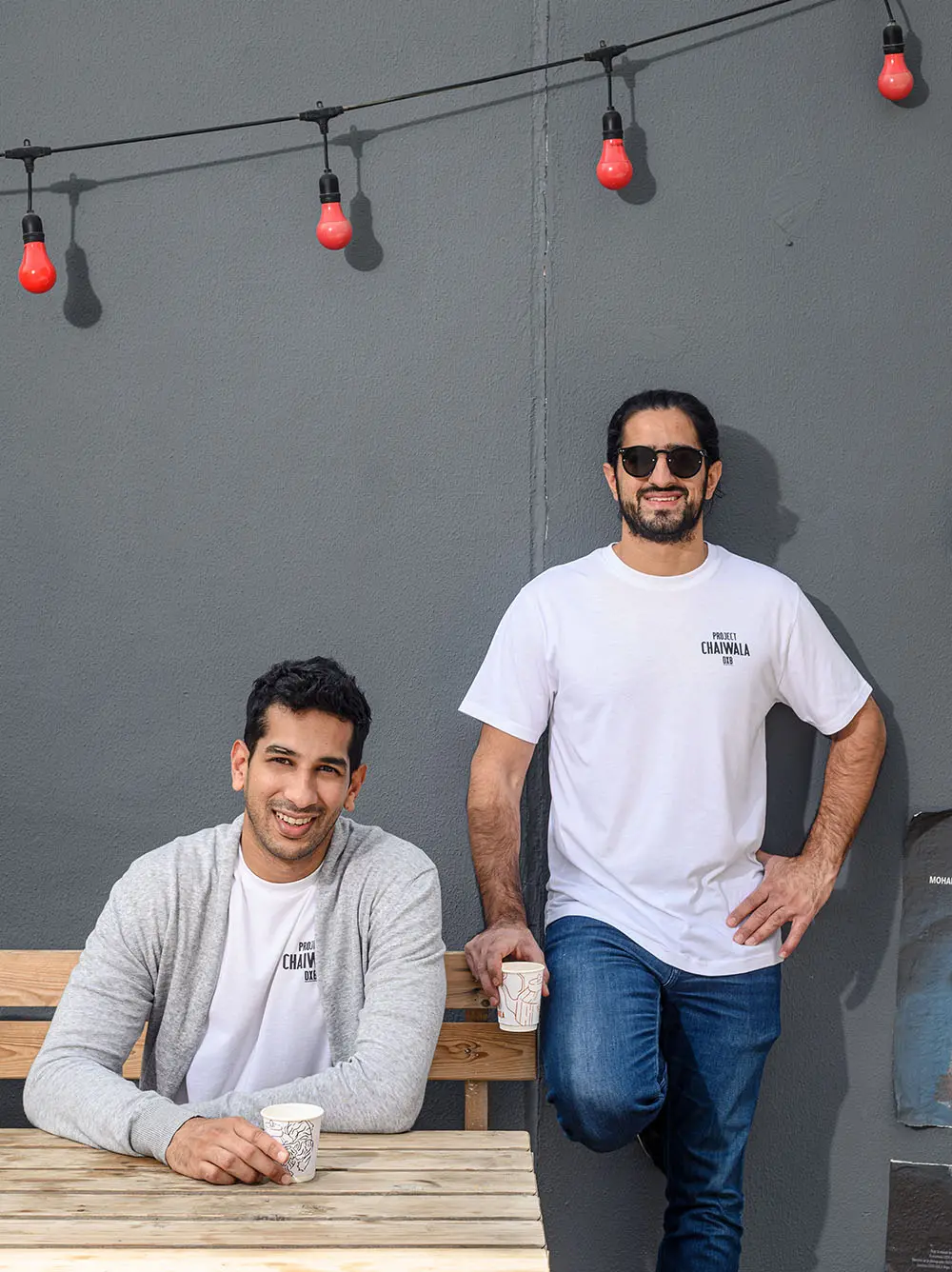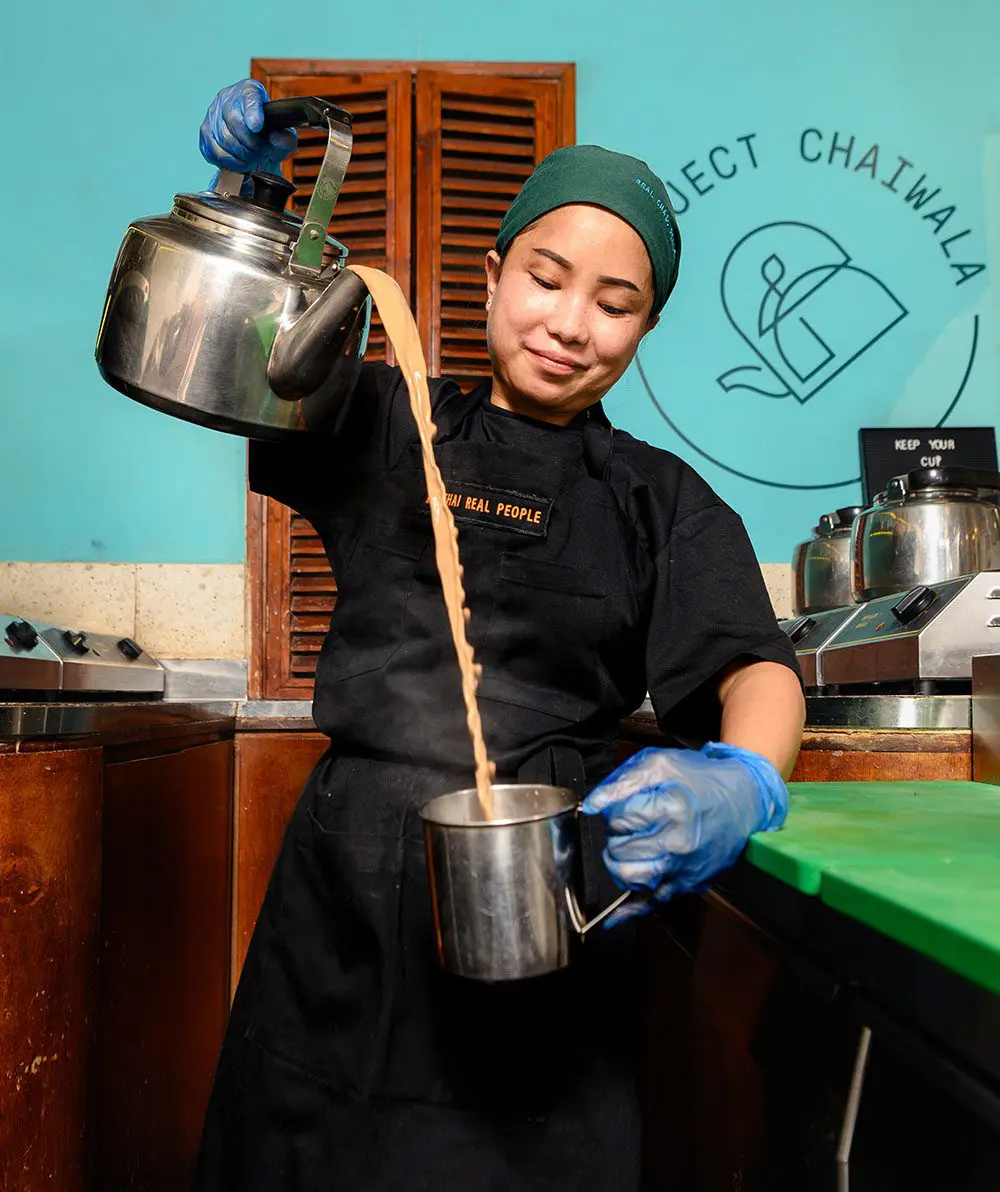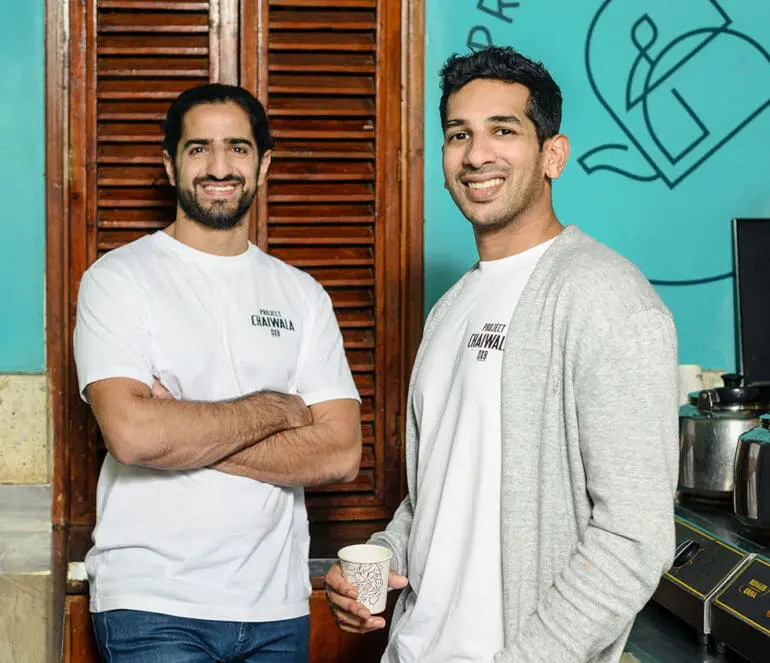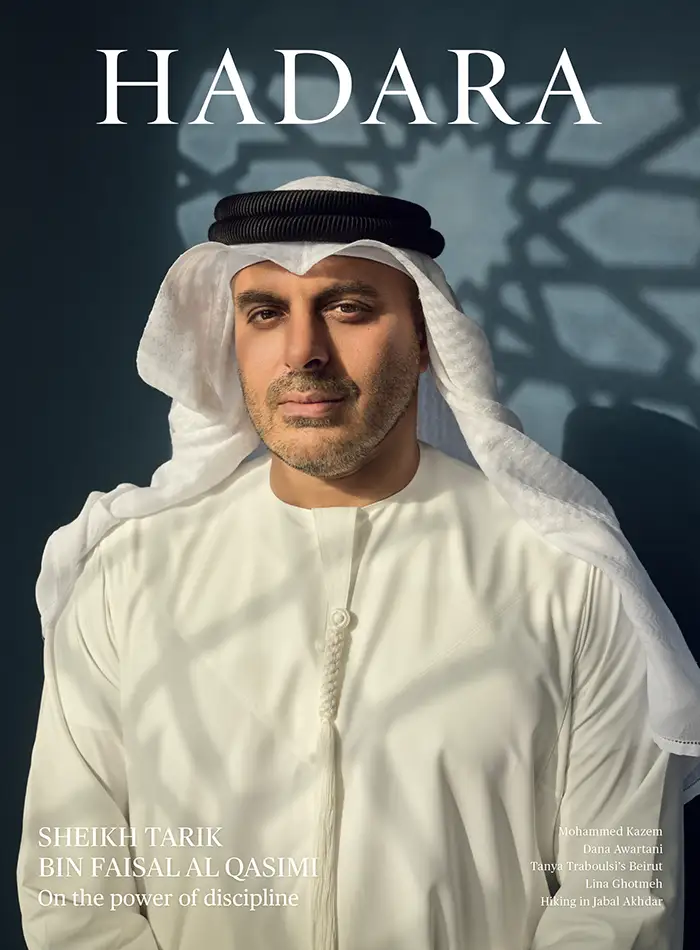Making Karak Cool
A Dubai duo aims to elevate tea for the region’s cosmopolitan consumers, and take it to the world.
By Nicola Chilton
Photographs by Siddharth Siva

The hip cafés that line Jumeirah Beach Road are testament to Dubai’s addiction to artisanal coffee. But another drink has been fuelling the city far longer. Karak chai, a sweet, spiced, milky tea costing just a dirham or two per cup, is as popular with the SUV drivers who honk for service at the ubiquitous kerbside outlets as it is with tired workers looking for a pick-me-up.
For Ahmed Kazim and Justin Joseph, founders of the Project Chaiwala chain of tea cafés in Dubai, karak is more than just a drink, but it needed a quality upgrade.
“Third-wave coffee was changing people’s perceptions,” Kazim says, “but tea is one of the most-consumed beverages here, especially karak. It’s part of our culture, and we knew there was something there, we just didn’t know what.”
Bonding over a shared passion for entrepreneurship while working at a consulting firm, Kazim and Joseph considered different business ideas until they settled on what they saw as a gap in the market. They started the venture as a side hustle, appearing as a pop-up serving karak and toast at events like the Sole DXB contemporary culture festival and Beach Canteen, but it quickly became a full-time job. They opened their first café in Cinema Akil in Alserkal Avenue.
Project Chaiwala aims to redefine tea for Dubai’s cosmopolitan consumers. Traditional karak outlets are designed for a kerbside pit-stop, collect and go. Project Chaiwala has created comfortable, contemporary spaces in which to build a community around karak. Customers here are invited to linger. They currently have branches across Dubai, including the Emirates NBD HQ and Ibn Battuta Mall, and they not only offer freshly brewed karak and food, but also loose-leaf teas, chai mixes and gift sets.
“The youth culture of the UAE is the DNA of our brand,” Joseph says. “Representing the multicultural beginnings of the country, with karak itself being a mix of Indian and Arabic cultures, is really important to us.”
Both men grew up with it. Joseph’s family, who moved to Dubai from Delhi, called it chai, while Kazim’s Bahraini-Emirati family used the Khaleeji name karak, meaning “strong” in Hindi, both terms being largely interchangeable in the Gulf.

The concept is about the process of brewing the tea and the craftsmanship behind it. Following a visit to Calcutta to experience the culture around chai, they incorporated the dramatic way of pouring and the chant of the chaiwala.
Going for karak is a rite of passage in the region. As friends got their driving licenses, they would drive around the city at night, stopping for karak at the streetside cafeterias. “It was a very social thing,” Kazim says.
One of the attractions was its affordability. “As a kid, you’re not going to go out and sit in a restaurant,” Joseph says. “You’d have a couple of karaks, and it would only cost a couple of dirhams.”
Not so at Project Chaiwala, where a small cup costs eight dirhams, and the secret Signature blend costs 12. That’s because Project Chaiwala’s karak uses premium CTC leaves, so named for their “crush, tear, curl” processing method, brewed in a way that extracts the maximum flavour from the tea and infuses it into fresh milk. Much of the cheaper karak sold in Dubai uses dust tea, combined with large amounts of sugar and sweetened, evaporated milk.
“The sugar is what really gives you the kick and not so much the tea,” Joseph says. “It masks the flavour of the low-quality tea, and we wanted to shy away from that. Our whole concept is about the process of the chaiwalas brewing the tea, and the craftsmanship behind it.”
To develop their knowledge, Kazim and Joseph travelled to Darjeeling to visit tea gardens before heading to Calcutta to experience the street culture around chai. They returned home with ideas to assimilate into their product, including the “chai, chai, chai” chant of the Indian chaiwala, and the dramatic way of pouring the brew from a great height into the teacups.
Early on, Project Chaiwala sourced tea from a single estate in Darjeeling, but the partners have since developed a proprietary blend to be the basis of their karaks. The menu has expanded to include nostalgic street-food items and drinks, herbal teas, matcha, iced karak, and the latest roll-out, karak chai boba.
Project Chaiwala has diversified with partnerships, such as limited-edition sneaker collaborations with Converse and Adidas, street-food walks with Frying Pan Adventures and Rove Hotels, and Karak Grooves DJ sessions with up-and-coming artists at the 25hours Hotel Dubai. They plan to expand into the B2B and hospitality spheres, beginning with instant chai sachets for hotels. “This will be a good study for us,” Joseph says. “If we can go into hotels, we can go into airlines as well, even airports.”
While Kazim and Joseph want to expand further within the UAE, “our ultimate goal is to create a brand that is scaled from the UAE to the world, rather than the other way around,” Kazim says.



